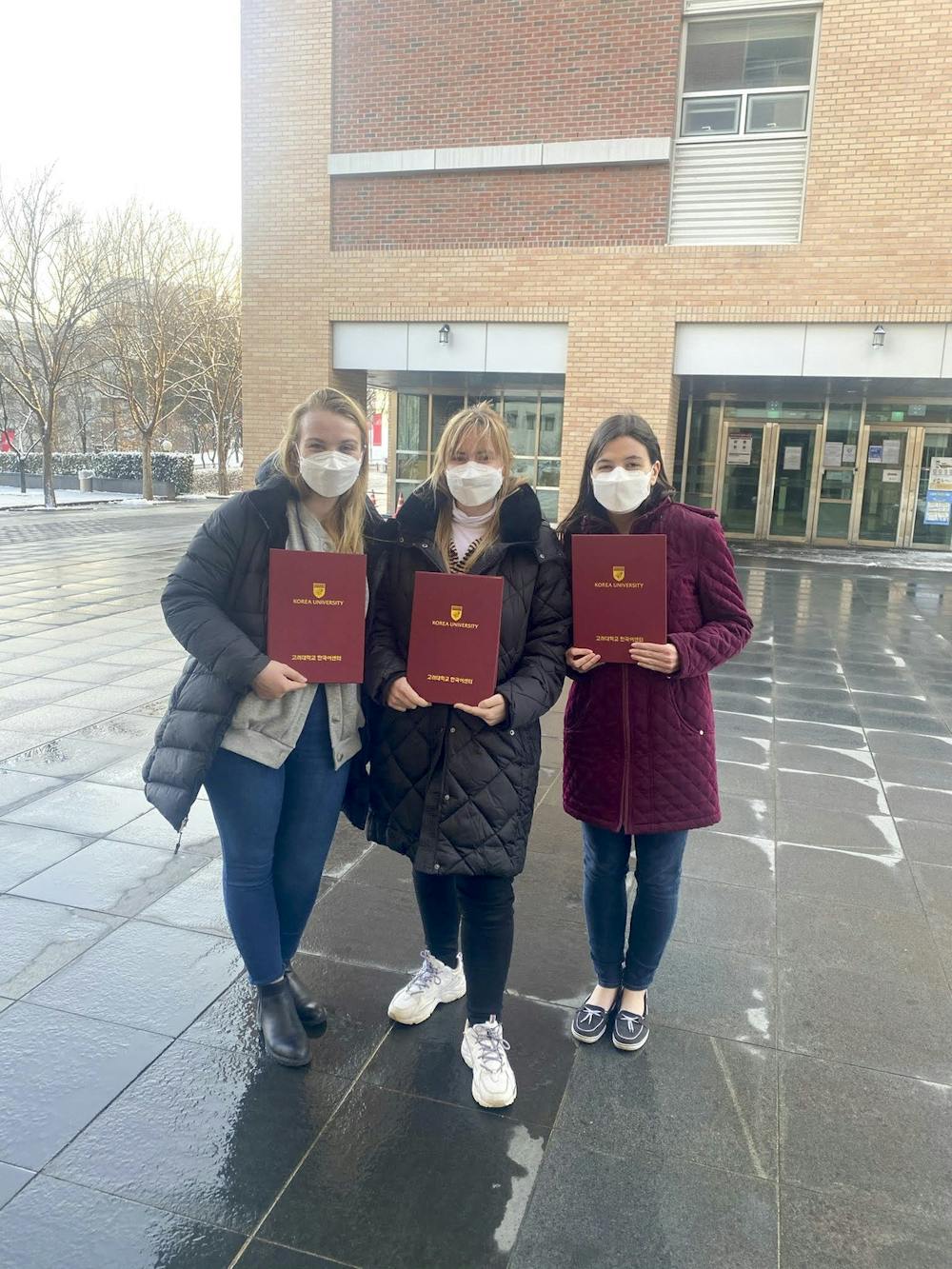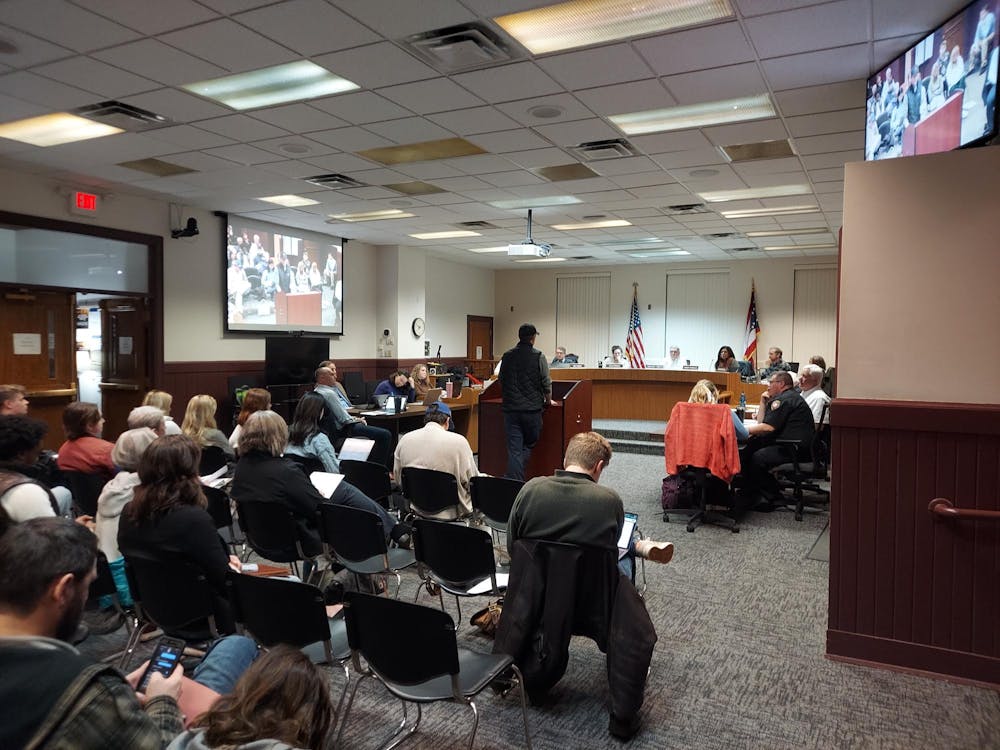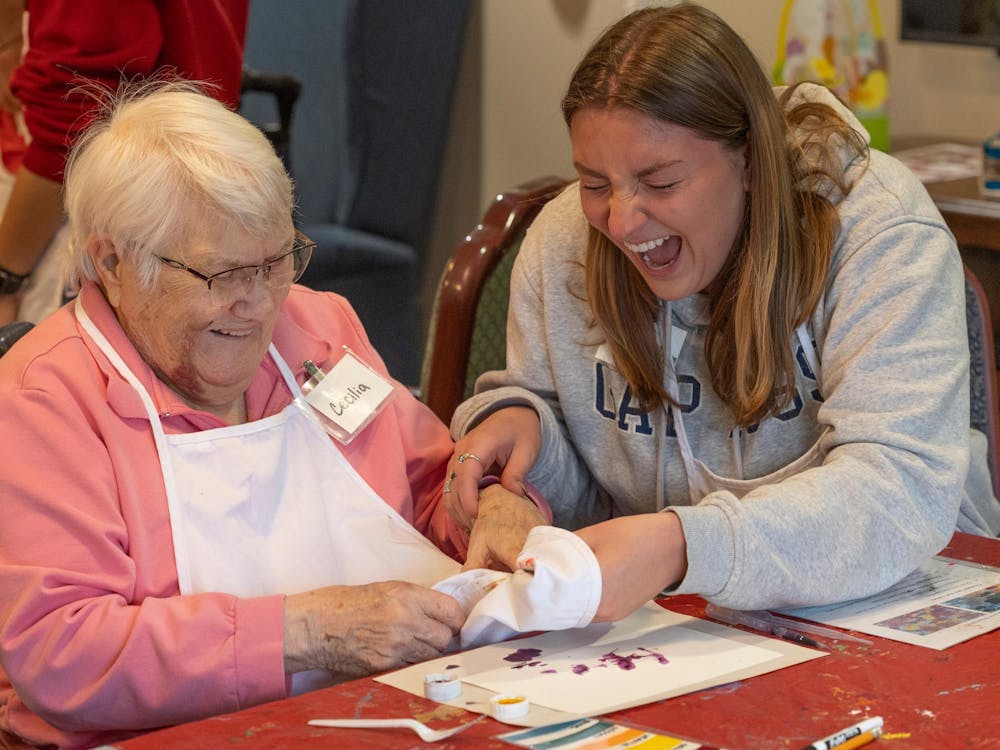Telling someone about Miami University in Oxford, Ohio can be difficult in other parts of the U.S., but 2020 alumna Madeline Marshall has found a place where it’s tougher.
“Trying to explain Miami in South Korea is the most confusing thing,” she said.
Marshall is a Fulbright Student grant recipient currently living in the city of Cheonan, working as an English Teaching Assistant (ETA) at the Bugil Girls Academy. After nearly three months of being mistaken for a Floridian, she usually gives up on explaining.
“I’m not repping Miami as proudly as I should, but it’s too complicated,” Marshall said.
This year, Miami was named a top-producer for Fulbright, a program that sends its grant recipients to study and work abroad in foreign countries. Miami currently touts five alumni, all ETAs, abroad on Fulbright grants for the 2020-2021 academic year.
Marshall is joined in different parts of South Korea by Johanna Alexander and Julia Zorc, while Elena Arduin is in Taitung, Taiwan and Camila Rodriguez works in Asturias, Spain.
Shortly after receiving grants in the spring of 2020, they heard from Fulbright that they wouldn’t be able to start at their placements until January 2021 at the earliest.
This decision left the five grantees with several months to wonder whether they’d ever get to leave — and whether they should move on.
“I hadn’t really had anything else set up,” said Arduin, a Bridges Scholar and public health major while at Miami. “I was kind of betting on Fulbright.”
For Arduin, the uncertainty of the waiting period led right up to departure.
“I wasn’t entirely sure that I was going to be able to come to Taiwan until I was boarding a plane,” she said.
After some long plane rides, the Fulbright grantees were greeted at their respective locations with a two-week quarantine. Except Marshall — her greeting was a little different.
Enjoy what you're reading?
Signup for our newsletter
After traversing the airport and passing through customs with all her bags and wearing a winter coat, Marshall had the misfortune of running a temperature. She didn’t know any Korean to say she didn’t have a fever and was sent to a government facility to be tested and stay the night.
It wasn’t the welcome she expected, but she joined Zorc and Alexander soon after at Korea University’s campus in Sejong, where they waited out their quarantines and completed a four-week orientation.
The first weeks got mixed reviews — Alexander said they were “super fun,” but Arduin said her quarantine in Taiwan was “a very stressful time,” bearing with it the possibility that she could test positive and be sent home without ever setting foot in a classroom.
Arduin stayed healthy, and now she works at Hot Springs Elementary in a small, southern city called Zhiben.
Taiwan has controlled the virus well, and Arduin is able to teach classes of first through sixth-graders with no masks. The only barrier comes with language, which she said can be especially difficult for young children who are just starting to learn English. That doesn’t stop her from enjoying their talks, though.
“It’s really fun to just hang out with the kids,” she said. “They know I don’t speak Chinese, so when we have conversations with my little Chinese that I know, they get really excited when I figure out what they’re asking me.”
Arduin said the efforts they make in speaking reflect their larger community.
“Overall, people have been very willing to try and communicate,” Arduin said.
Korea has been similarly welcoming to its Miami Fulbrighters.
Despite their range of experience with the country — Alexander is on her third visit — all three found challenge in the foreign setting, and they all found community, whether with their host families, students, fellow teachers or all of the above.
The teachers’ badminton club at the Bugil Girls Academy in Cheonan provided Marshall with a healthy dose of both one Monday afternoon when she was invited to partake by a couple of colleagues. Grantees are told at orientation to say ‘yes’ to every opportunity they’re presented with, so, naturally, she accepted.
“I was like, ‘Yeah, sure, I can play badminton. That sounds fun. How hard can teachers’ badminton be?’” Marshall said.
Marshall said when she walked into the gym, it felt like the Olympics.
“The teachers are just slamming it back and forth at each other, and I start swinging and missing, and I’m getting pelted with these birdies,” she said.
While she realized Korea’s passion for badminton surpasses her own, Marshall hasn’t let that deter her.
“I went back,” she said. “I’m in the teachers’ badminton club on Mondays, and hopefully I [will] get better.”
Zorc found the most entertaining part of her welcome on a bus, with an old lady who was apparently amazed to be sharing the ride with her, patting her arm and speaking to her in the area’s strong dialect.
“All I heard was, ‘Wow! American!’” Zorc said.
She hasn’t been ogled at on all travel, though. A weekend hike through a little valley brought her and her host family to a small shop where they got ice cream and sat around a wood fire while Korean folk music played on the shopkeeper’s radio.
“It was really, really peaceful. It was just a very nice place to be,” Zorc said.
Family-living even provided adventure to Alexander, who has seen Korea twice before but never with a homestay family.
“The biggest struggle personally, but also the most rewarding thing, has been the homestay experience,” she said.
She hit it off with the family’s daughter, Chaerin, with whom she likes to play cards, “Just Dance,” watch TV and go to the park.
For at least one of them, the time has been good enough that she wants to hang around for a bit longer.
“I’m also hopeful that after the grant period ends, I can stay in Taiwan for another month,” Arduin said.
She wants to travel if the vaccine has allowed for it by summer.
While the COVID-19 pandemic didn’t keep Miami’s grantees from the Fulbright experience, Alexander said it will only improve for the students of the future.
“If I can have a good time in this situation,” Alexander said, “then anybody else who ever does this, it will just be that much better.”




